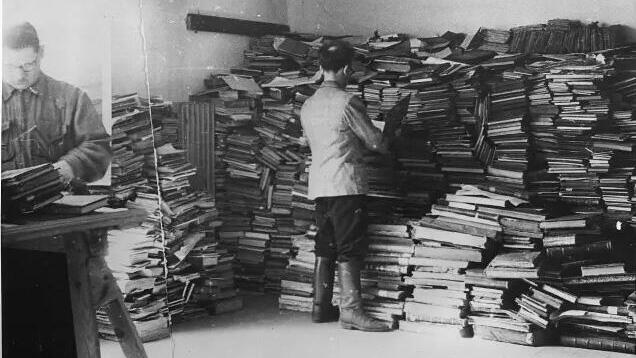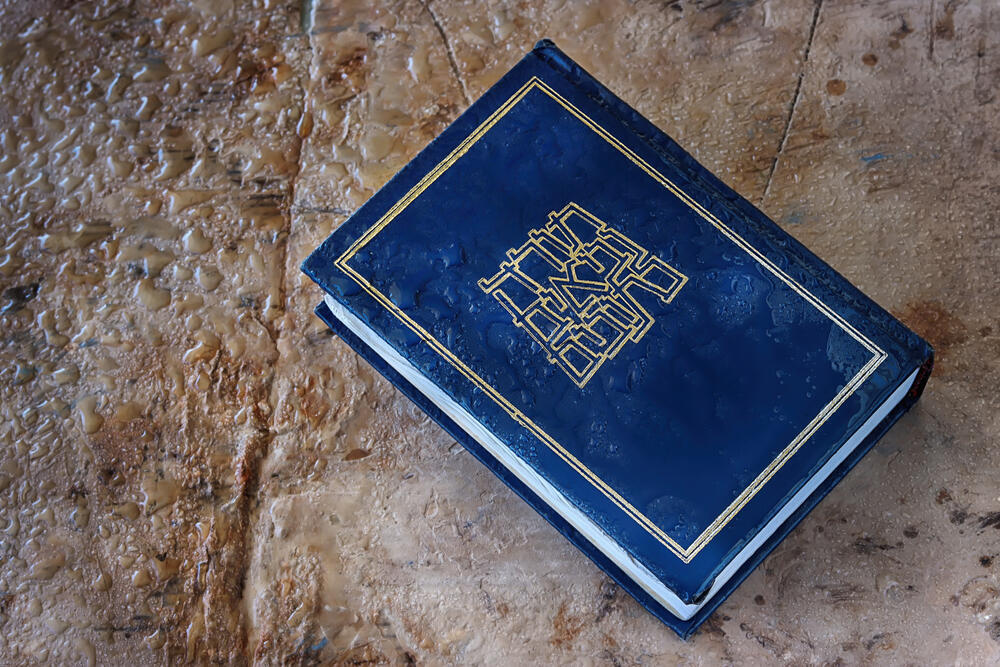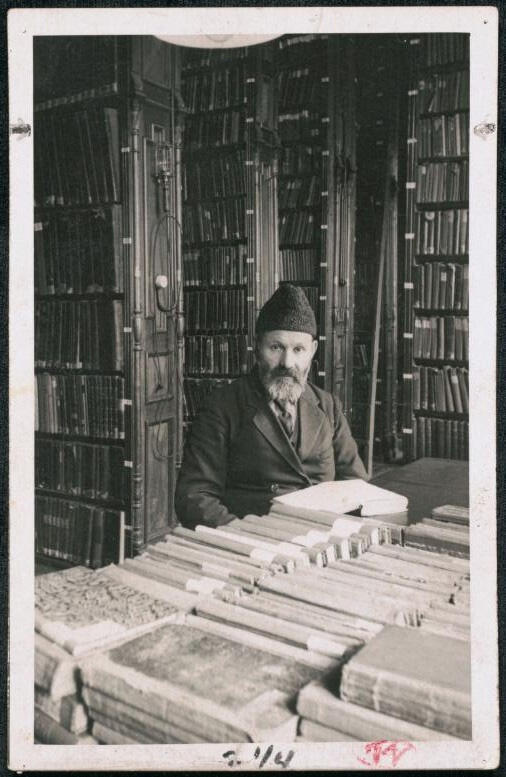The horrors of the Holocaust continue to be a source of profound reflection and historical lessons' scrutiny. The diaries of Zelig Kalmanovich, a prominent Jewish scholar in the Vilna Ghetto, offer a glimpse into the agonizing choices faced by individuals trapped within Nazi tyranny. Kalmanovich's story not only illuminates the brutality of the Holocaust, but also sparks complex debates about resistance, survival, and the enduring spirit of the Jewish people.
3 View gallery


Jews in the Vilna Ghetto
(Photo: The Association of Jews from Vilna and Vicinity in Israel)
Vilna was once a vibrant center of Jewish life and learning. Prior to World War II, its streets teemed with scholars, artists, Rabbis, and students. Among them was Dr. Zelig Kalmanovich, a respected researcher of Jewish culture and history and an expert on Yiddish language and literature. His writings reveal a man deeply connected to his heritage who found solace and strength in the rich tapestry of Jewish tradition and history, even in the worst times.
The Nazi invasion of the Soviet Union in 1941 shattered this idyllic world. Vilna was swiftly occupied by the Germans, and the Jewish population was confined to a crowded ghetto. Kalmanovich, along with many others, found himself stripped of his freedom and faced an uncertain future.
Within the ghetto's suffocating confines, he turned to scholarly and personal writing. His diaries, painstakingly penned under constant threat of discovery, offer a poignant account of his personal struggle and philosophical, existential musings. They reveal a man grappling with faith, the atrocities unfolding around him, and the role of a scholar in a world gone mad.
A central theme in Kalmanovich's writings is his unwavering faith in Judaism. He viewed Jews as part of the big "sacred triad"—the Land of Israel, the Torah, and God—which provided a source of enduring strength and was a guarantor of ultimate Jewish victory. Even as suffering intensified, his diary entries resonated with deep optimism. He believed that by clinging to their heritage, Jews could preserve their identity and emerge stronger.
However, Kalmanovich's approach to resistance ignited controversy. He disapproved of armed uprisings within the ghetto, fearing that the young Jewish rebels would incite retaliation from the Nazis and further endanger the already vulnerable population.
His diary entries prove his belief that those who felt compelled to fight should escape the ghetto and join the resistance elsewhere. This pragmatic stance clashed with the philosophy and determination of underground movements like the FPO Underground (the United Partisan Organization), which viewed armed struggle as the ultimate form of defiance and the way to reclaim agency in a situation utterly devoid of it.
The diaries also shed light on Kalmanovich's complex relationship with the Judenrat, the Jewish Council, tasked with administering the ghetto under Nazi rule. While critical of their leadership, he appeared to understand the impossible choices they faced. In one instance, he even defended the actions of the Jewish police after a horrific event where they were forced to select a certain number of elderly and sick Jews for execution and did so to save many others.
He championed the ghetto's schools, synagogues, and libraries, viewing them as battlegrounds for the preservation of Jewish identity and a continuation of Jewish history. He believed that by clinging to their heritage, Jews could defy Nazi attempts to extinguish their spirit. He lectured his fellow inmates in the ghetto, "On the victory of spirit." This approach emphasizes the multifaceted nature of resistance, demonstrating that even acts of preservation of tradition and religion can be powerful weapons against oppression.
Zelig Kalmanovich's story is a testament to the resilience of the human spirit in the darkest of times. His unwavering faith in Judaism offered temporary comfort and fueled hope in the face of despair. His pragmatic approach to survival, while controversial, reflected the agonizing decisions individuals were forced to make under Nazi rule. Most importantly, his diaries remind us that resistance can take many forms and that cultural preservation is a potent weapon against tyranny.
Kalmanovich's life and legacy remain controversial, inviting us to consider the complexities of human behavior in the face of unimaginable horror. His personal fate was tragic – he died of hardship and illness in a forced labor camp in Estonia.
Eyewitnesses recalled his last words: "I laugh at you, I am not afraid of you, I have a son in the Land of Israel." Indeed, his son emigrated in 1938 and settled in a kibbutz, where his descendants still live.
Zelig Kalmanovich's philosophy offers valuable insights into navigating the rise of today's antisemitism. His emphasis on spiritual and cultural preservation as a form of resistance resonates deeply in today's reality.
 Dr. Daniela Ozacky Stern
Dr. Daniela Ozacky Stern The perspective of the long Jewish history is essential in analyzing the current events. By actively engaging with Jewish traditions, language, and history, communities can strengthen their sense of identity and belonging. This spiritual fortification is a powerful counterweight to the forces of hatred and intolerance. Kalmanovich's model reminds us that even in the face of adversity, nurturing Jewish heritage can be a powerful act of defiance and a source of resilience against contemporary antisemitism.
Dr. Daniela Ozacky Stern is a lecturer in the Holocaust Studies Program at the Western Galilee College in Israel, researching Antisemitism and propaganda in Nazi Germany and Jewish resistance during the Holocaust.



